Storks: A Comedy That Doesn’t Quite Deliver
Storks, a new animated film, attempts to breathe fresh life into the age-old myth of storks delivering babies. However, this comedic venture struggles to take flight, resulting in a film that’s visually appealing but narratively underwhelming.
The premise is intriguing: after a rogue stork’s attempt to keep a baby for himself, storks transition from baby delivery to package delivery for a global internet retailer. Junior, the company’s top performer, is on the cusp of a promotion when a mishap occurs. An 18-year-old human, Tulip – the very baby the rogue stork tried to keep – accidentally activates the long-dormant baby-making machine, resulting in an unauthorized infant. To avoid corporate repercussions, Junior must deliver the baby. With a damaged wing, he relies on Tulip’s inventive spirit and her dream of flight to complete the mission. Meanwhile, a young boy named Nate is trying to convince his workaholic parents to build a landing platform for the stork and his new sibling.
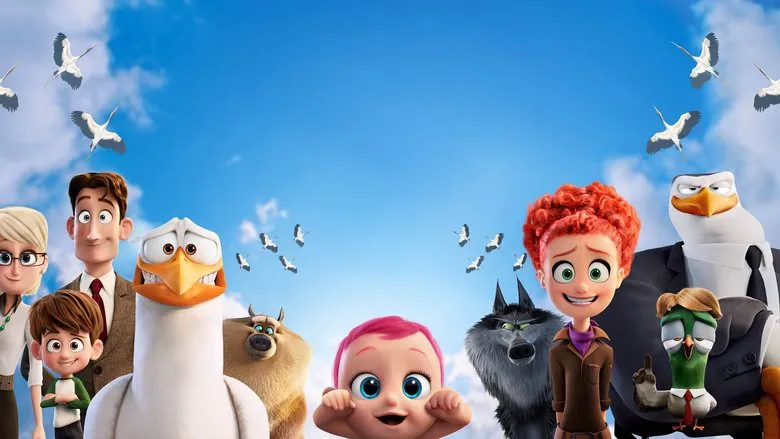
Historically, the myth of storks delivering babies arose from the observation that storks often returned from their winter migrations around the same time babies were born in medieval Europe, often nine months after the summer solstice.
Warner Bros. Enters the Animation Arena
Seeing the success of other studios in the animated film market, Warner Bros. decided to claim its share. Lacking its own animation studio, Warner began investing in external productions, guiding their creation under the Warner Bros. banner. The first such venture was “The Lego Movie” by Animal Logic, which exceeded expectations both financially and creatively.
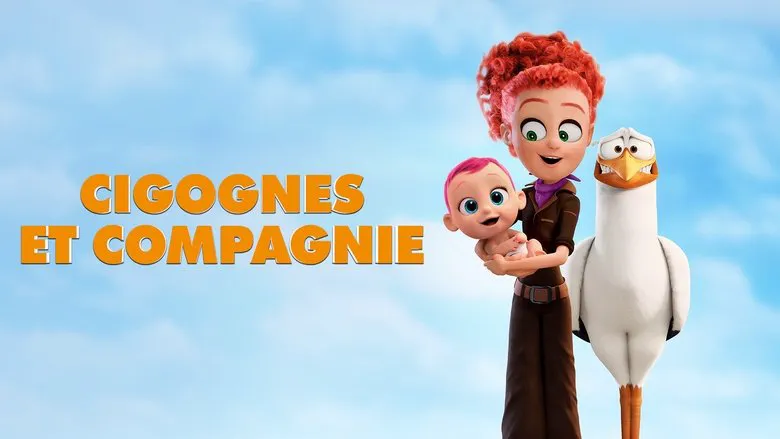
The idea for a film about “unconventional” childbirth came to Nicholas Stoller after he and his wife required medical assistance to conceive their second daughter.
Now, Warner Bros. presents “Storks,” animated by Sony Pictures Imageworks. Directed by Nicholas Stoller, known for live-action comedies like “Neighbors” and “Get Him to the Greek,” the question arises: how does he fare in the animated realm?
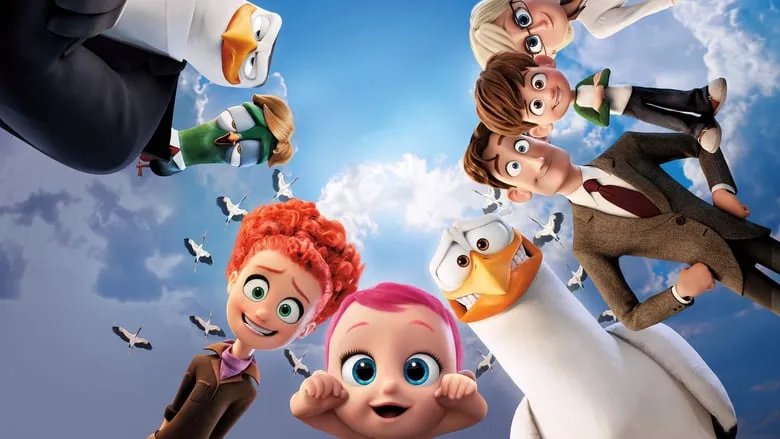 .jpg)
.jpg)
Visual Brilliance, Narrative Shortcomings
Unfortunately, not very well. “Storks” is clearly divided into two distinct aspects. The visual elements, crafted by the artists and animators, are exceptional. The film boasts vibrant visuals, impressive landscapes, and remarkable character animation. Technically, it’s arguably Sony Pictures Imageworks’ finest work, surpassing their previous efforts on “Cloudy with a Chance of Meatballs” and “Hotel Transylvania.”
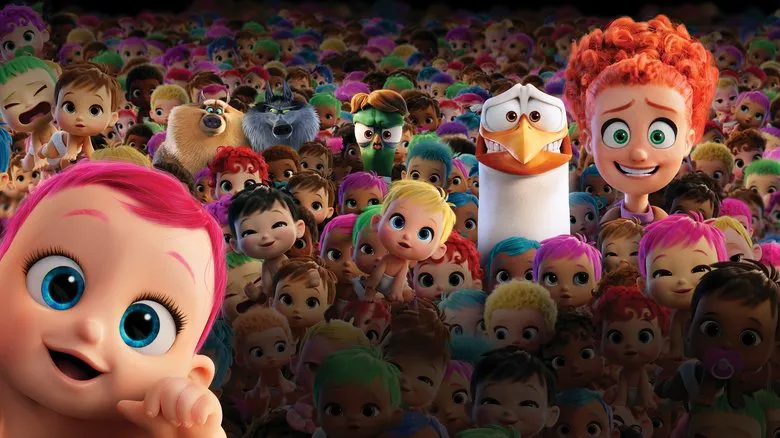
However, the film’s concept, script, and humor, primarily Stoller’s domain, fall short of the visual excellence. “Storks” bears a striking resemblance to “Monsters, Inc.,” a significant drawback. The animated film market isn’t so saturated that creators can afford to borrow plots from each other. To compete with Pixar, more originality is needed.
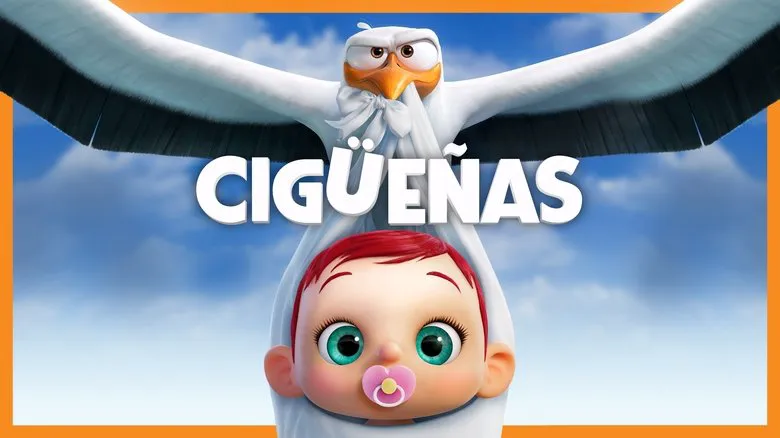
Furthermore, while “Monsters, Inc.” emotionally resonated with anyone who feared monsters as a child, the central question of “Storks” – “What should storks deliver?” – lacks emotional impact. The film implies that babies arrive just fine without storks, diminishing the significance of the storks’ business model. Unlike Monsters, Inc., the Storkzon company doesn’t engage in any reprehensible behavior until its CEO tries to stop Junior and Tulip. Thus, while Pixar’s film explored the ethics of big business, Warner’s film merely suggests that some CEOs are villains, a weaker premise that may leave audiences indifferent.
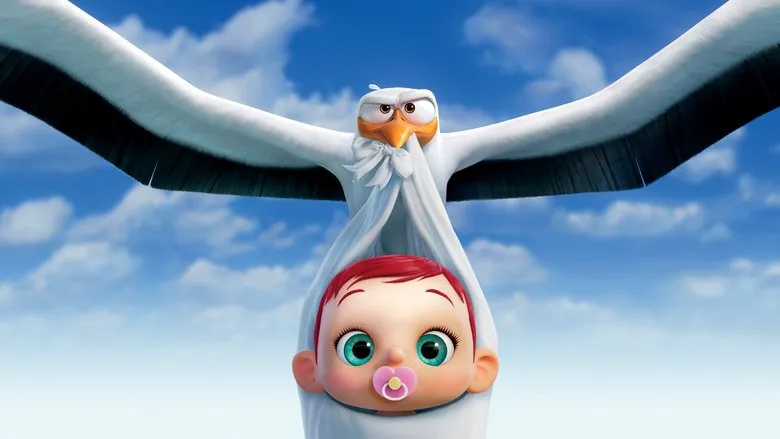
Of course, business philosophy is secondary in such films, with the focus on the characters’ comedic misadventures with a baby. However, this is where the film falters most. Throughout the screening, the audience, comprising both adults and children, laughed only a handful of times, and not with great enthusiasm.
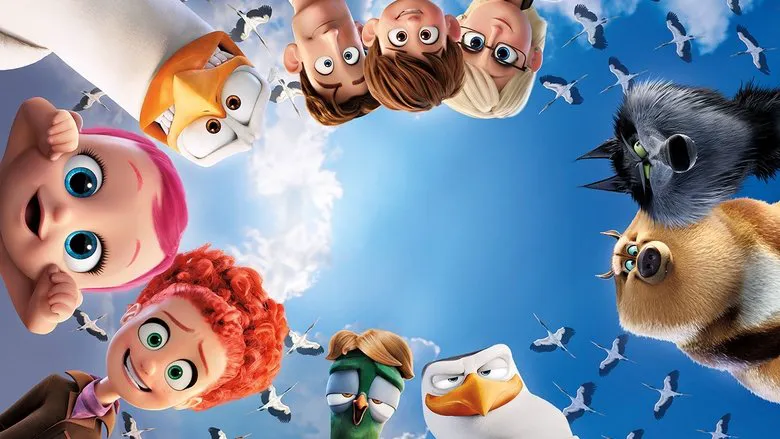
Instead of clever jokes arising naturally from the situations and characters, “Storks” relies on forced clowning, such as a prolonged scene where Tulip talks to herself, impersonating various characters. While this might have seemed funny on paper, it fails to elicit even a smile on screen. Truly funny moments are few and far between.
A Few Redeeming Qualities
Did Stoller achieve anything worthwhile? Yes. “Storks” is undeniably endearing due to its abundance of babies, and the plot moves at a brisk pace. Young parents may find the film relatable, recognizing their own struggles in Junior and Tulip’s trials with a fussy infant, while older parents may see themselves in Nate’s parents. It’s also a “wholesome” film that promotes positive messages about family and children. However, one expects more from a blockbuster animated film backed by a major Hollywood studio.